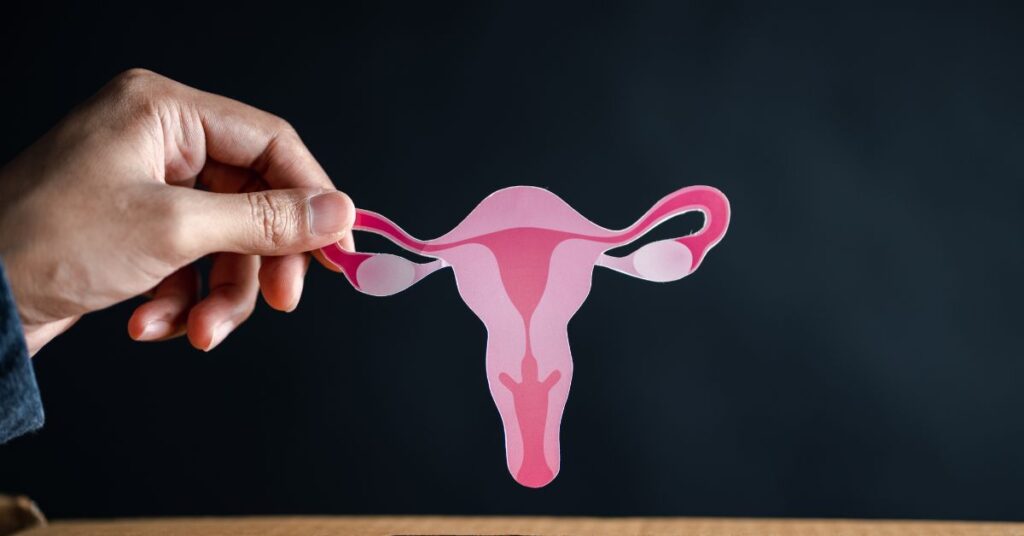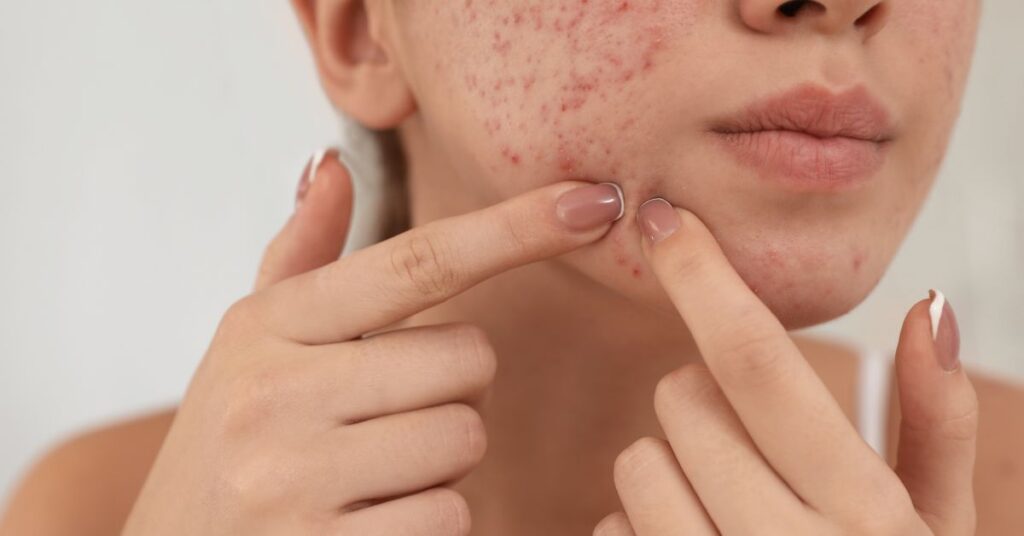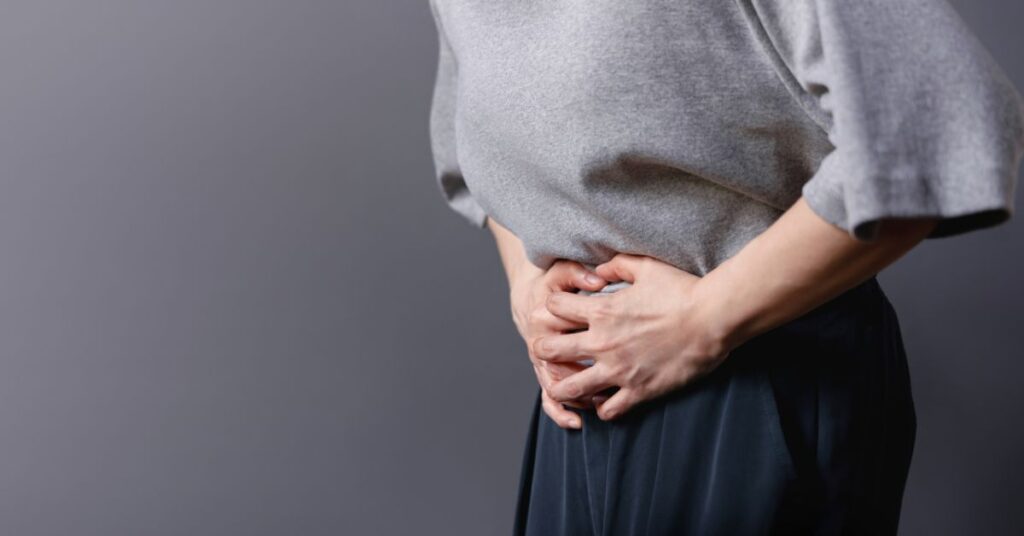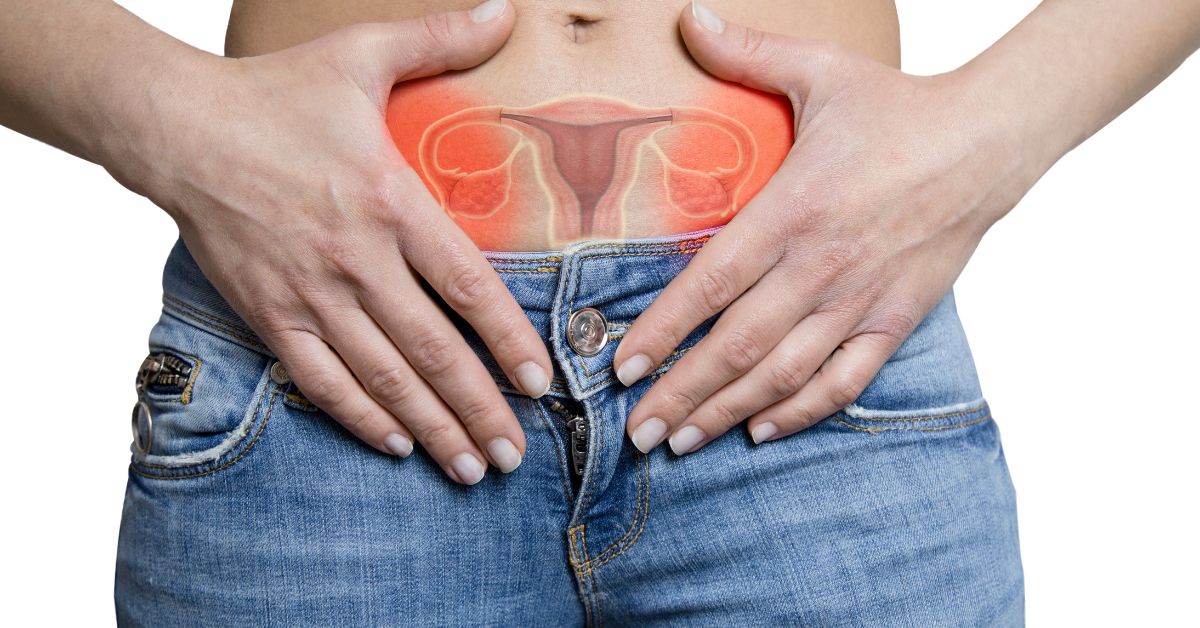Is PCOS a Serious Threat? Here’s Everything You Need to Know
You must’ve heard a lot of theories regarding a hormonal imbalance that affects millions of women globally. Now, you might be wondering what that could be. Well, this is the case of polycystic ovary syndrome, popularly known as PCOS. Often written off as merely irregular menstruation, PCOS is a condition that is clouded with a lot of confusion and mystery. But what exactly is PCOS and why is it important to know about it?
For those who don’t know, PCOS is a complicated hormonal deregulation that often hampers a woman’s health in a way that might also affect a woman’s fertility. This is something which is not known to many. But this ignorance can sometimes lead to unforeseen circumstances. So, to avoid any serious complications, it is better if you’re more aware of this condition.
If you’re thinking about where to find out what PCOS is and what are its treatment options, you don’t have to look further. This blog will help you uncover everything related to PCOS and what you need to do regarding it. So what are you waiting for? Peep in to learn more!
What is PCOS?
PCOS also known as polycystic ovary syndrome, is a hormonal disorder that impacts your ovaries (the reproductive organs responsible for producing eggs). Interestingly, 1 out of 10 women are found to have this condition, which is again a matter of concern.
PCOS is also one of the most common causes of infertility in women. It mainly targets women who are of reproductive age. If you have PCOS, you’ll be experiencing a lot of hormonal imbalances in your body. These hormonal imbalances further lead to:
- Irregular periods
- Excess facial and body hair
- Acne
- Weight gain
- Bloating
- Mood swings
- Excessive hair loss
- Infertility
- Cyst formation in ovaries
- Other health-related problems like type-2 diabetes, high blood pressure, cardiovascular disease, and endometrial cancer
Cyst formations on the ovaries are usually rare, but they can occur in some women. Cysts are tiny fluid-filled sacs that can prevent your ovaries from routinely releasing eggs, resulting in irregular periods and other reproductive problems. Since women usually with PCOS do not have cysts, the term polycystic can become a little confusing for some.
However, many women often do not exhibit any symptoms of PCOS at all. That’s why up to 70% of women with PCOS are unaware that they have the condition.
You might develop PCOS after puberty, but you may not know about it until you’re trying to conceive. This is the case with most women. That’s why it’s necessary to be aware.
You might wonder if you’ll ever get rid of PCOS at all. But the truth is, it is quite impossible. Although the symptoms of PCOS never completely disappear, however, they normally improve after menopause. In the meantime, certain treatments can help you become pregnant or manage your symptoms.
The Prevalence of PCOS in India

The prevalence of PCOS in India seems to be on the rise. In India, every 1 in 10 women is affected by PCOS, which is quite frightening. Many times, it is not diagnosed properly or sometimes it is even left untreated. This can have serious health complications in women. It is found out, 40% of women with PCOS suffer from insulin resistance which further leads to type-2 diabetes.
According to the records of the World Health Organization, approximately 116 million women may have PCOS. The National Health Portal of India reported that Maharashtra has a 22.5% PCOS prevalence rate. An earlier survey from South India reported an incidence of 9.13% which also included teenage girls.
What are the Symptoms of PCOS?



While irregular periods are a defining feature of PCOS, it can also present itself in unexpected ways, such as undesired hair growth or persistent acne. However, these symptoms can vary from person to person depending on the intensity of your condition. To understand the symptoms of PCOS better, let’s take a look at them:
Acne breakouts – If you have PCOS, you’ll notice a lot of acne breakouts on your face and other body areas such as your chest or back.
Dark patches on skin – You may develop dark skin patches on your neck, beneath your arms, or even under your breasts.
Oily skin – Excess levels of androgens may cause your skin to become oily and sticky.
Excess hair growth – You may also develop hair in areas of your body that you wouldn’t prefer. It may include your face (hirsutism), belly, arms, chest, fingers, and toes.
Hair fall – Your hair may get thinner on your head if you have PCOS, particularly if you’re middle-aged or older. Sometimes it may even lead to baldness.
Skin tag – Your armpits and neck are the most common places for these little flaps of extra skin to emerge.
Pain or discomfort – You may experience excruciating pain in your lower abdomen region. This can even happen outside your menstrual cycle.
Increased weight (PCOS belly) – Approximately 50% of people with PCOS gain a lot of weight, particularly around their abdomen region or belly.
Cysts on the ovaries – You can also develop cysts or tiny follicles in your ovaries which will obstruct you from ovulating or releasing eggs. In that case, your ovaries will appear larger than usual.
Mood swings – When you have PCOS, you are more likely to experience frequent mood swings, anxiety, or sadness. This can happen due to hormonal fluctuations and even due to your stress managing PCOS symptoms.
Types of PCOS
Since you’re reading about PCOS, it would be really useful if you also know about the different types of PCOS. Learning about the different types of this condition will further help you to approach the right treatment. Here are the types of PCOS that you must know:
Full-Blown PCOS or Type A: It is the most prevalent type of PCOS among women. It affects up to 20% of women who are of reproductive age. If you have full-blown PCOS, you’ll experience the following:
- Ovulatory dysfunction – the inability to release eggs and irregular periods
- Increased levels of androgen – excessively high levels of male hormones
- Polycystic ovaries – cysts formation on ovaries
Non-PCO PCOS or Type B: If you have non-PCO PCOS, you experience issues with ovulation in addition to elevated androgen levels. But in this case, you don’t develop cysts on your ovaries.
Ovulatory PCOS or Type C: In ovulatory PCOS, your androgen levels will increase and you’ll also develop ovarian cysts.
Non-hyperandrogenic PCOS or Type D: If you’re someone with non-hyperandrogenic PCOS, you’ll have ovarian cysts and issues with ovulation, which can result in irregular or absent menstruation.
Apart from the above mentioned, there are also different types of PCOS characterized by their symptoms:
Insulin-resistant PCOS: People with PCOS are often insulin-resistant. It is a condition in which your body produces the hormone insulin but is unable to use it properly. If you have insulin-resistant PCOS, your chance of getting type-2 diabetes gets heightened.
Inflammatory PCOS: When your immune system tries to ward off an infection, inflammation happens. Studies have connected low levels of inflammation across the body to PCOS. Inflammation may further induce symptoms or aggravate them. It is often caused due to obesity and insulin resistance.
Hidden-cause PCOS: This term is sometimes used on websites to describe PCOS that has an unknown origin. However, this is often true with PCOS. Although the exact reason for the illness is unknown, some experts think that both environmental and genetic factors are responsible for it.
Pill-induced PCOS or post-pill PCOS: Generally, PCOS is not brought on by pills or other hormonal birth control methods. However, if you stop using birth control pills, you may experience irregular periods or other symptoms that resemble PCOS for a brief amount of time. Sometimes, hormonal birth control may also conceal PCOS symptoms. Therefore, you might not receive a diagnosis until you stop taking these. In certain cases, doctors may prescribe birth control pills to manage PCOS symptoms.
How PCOS Affects Your Hormones
Your body produces a wide variety of hormones. Hormones are responsible for regulating several functions in your body. Some of them have an impact on your menstrual cycle and are linked to your capacity for conceiving. But if you have PCOS, then your reproductive hormones are all over the place. Several hormones are heavily impacted by PCOS, let’s take a look at them:
Insulin
The hormone that controls your blood sugar levels is called insulin. According to scientific estimates, insulin resistance affects 30% to 80% of people with PCOS. You may accumulate too much insulin in your bloodstream if your body does not respond to insulin as it should. Some scientists believe that your body’s overproduction of androgens is a result of this extra insulin.
Androgens
Though androgens are commonly associated with men, however, everyone possesses them. Your ovaries produce more androgens than normal when you have PCOS. This may prevent your ovaries from releasing eggs on a scheduled monthly basis, leading to irregular menstruation. Excess levels of androgen will also cause you to have further symptoms such as acne, hair loss, and unwanted hair growth.
Progesterone
Your body cannot produce enough progesterone if you have PCOS. As such, you may have irregular periods or struggle to predict when they will occur.
Estrogen
Your estrogen levels may be excessive compared to your progesterone levels if you have PCOS.
What are the Causes of PCOS?

Although the cause of PCOS is still unknown, there may be certain factors that might be influencing it. These may include:
Increased weight – There is some sort of connection between your weight and PCOS. Most of the time gaining excess weight or obesity can lead to PCOS. However, the reverse is also possible as PCOS can also play a major role in weight gain.
Increased level of androgen – Majority of women with PCOS have unusual levels of androgens. In this case, women develop increased levels of testosterone which is a hormone present in males. This further obstructs the ovaries from producing eggs and results in insulin resistance.
Insulin resistance – The capacity of your ovaries to release eggs (ovulate) may be impacted by excess insulin. It may also make weight gain easier and weight loss more difficult.
Lifestyle – Some lifestyle choices such as eating too much-processed food, doing less physical activity, or consuming too much sugar may also be a probable cause behind PCOS.
PCOS Risk Factors
There can be different risk factors associated with PCOS. Some of them are:
Genetic predisposition: An increased risk is hinted at by having a close relative with PCOS or other menstrual problems. This suggests a genetic component to the narrative.
Overweight or obesity: Excess weight, especially around the abdomen, can exacerbate PCOS symptoms and make treatment more difficult.
Type-2 diabetes: Later on in life, PCOS can also raise your risk of type 2 diabetes, which emphasizes the significance of early detection and good care for both conditions.
Understanding the Complications Caused by PCOS in Detail

Even though irregular menstruation and excessive hair development are frequently the initial symptoms, PCOS can have serious repercussions that, if ignored, could result in difficulties. Let’s understand these complications in detail:
Difficulty in conceiving
The process of ovulation may be hampered by hormonal abnormalities. You cannot become pregnant if there isn’t a healthy egg accessible for a sperm to fertilize. But even if you have PCOS, you could still be able to become pregnant. For that, you may need to see a doctor and take medication.
Complications during pregnancy
Most women with PCOS can conceive safely. However, having PCOS during this phase can somehow increase your chance of developing high blood pressure (preeclampsia) and diabetes (gestational diabetes). It may also raise your chance of having a miscarriage, cesarean birth, and premature delivery.
Diabetes and insulin problems
The cells in your muscles, organs, and other tissues cannot absorb blood sugar as efficiently when you have insulin resistance. As a result, your blood sugar level may increase. Typically, insulin resistance is asymptomatic until blood sugar reaches a point where diabetes is diagnosed. By the time you are 40 years old, type 2 diabetes will strike more than half of people with PCOS.
Metabolic syndrome
If you have a set of metabolic syndrome, then your chances of getting cardiovascular diseases may increase. Some of the symptoms of metabolic syndrome are high blood pressure, elevated blood sugar, low HDL (“good”) cholesterol, and elevated triglyceride levels.
Other complications
Other complications of PCOS may include:
- Anxiety
- Depression
- Vaginal bleeding as well as an increased risk of endometrial and uterine cancer
- Insomnia
- Hepatic inflammation
What is the Difference between PCOS and PCOD?
The terms PCOS and PCOD can often be confused due to their similar name. You might wonder whether they’re the same or different.
Both medical conditions are associated with ovaries and hormonal imbalances in women during their reproductive age and depict the same symptoms. But there are some differences between the two conditions that you must know.
PCOS vs PCOD
Properties | PCOS (Polycystic Ovary Syndrome) | PCOD (Polycystic Ovary Disease) |
Definition | It is an endocrine disorder with immature follicles and a more severe form of PCOD that can stop ovulation | PCOD refers to a metabolic disorder in which ovaries produce many immature or partially mature eggs due to poor lifestyle, obesity, stress, and hormonal imbalance |
Occurrence | In lower number of women | In higher number of women impacted |
t by pregnancy | Difficulty in getting pregnant | No change in fertility |
Presence of cysts | Minimum number of cysts | More than 10 cysts treatment treatment |
Treatment | There’s no treatment | Can be treated with medication |
What is the Difference between PCOS and Endometriosis?
While endometriosis and PCOS both have an impact on the female reproductive system, yet, they are two separate diseases with different symptoms, causes, and treatments.
PCOS vs Endometriosis
Properties | PCOS | Endometriosis |
Definition | PCOS is essentially an imbalance in hormones that causes an increase in androgen levels. This may interfere with ovulation and result in ovarian cysts. | Endometriosis is the expansion of the endometrial tissue (the outer lining of the uterus), outside the organ. This occurs frequently on the fallopian tubes, ovaries, or pelvic lining. |
Symptoms | Irregular menstruation, excess hair growth (on face, chest, or abdomen), acne, obesity, difficulty losing weight, and potential infertility. | Period cramps, abdominal discomfort, pain during intercourse, heavy bleeding, and difficulty getting pregnant. |
Treatment | Often combines medicine (to control insulin resistance, regulate hormones, and treat particular symptoms) with lifestyle modifications (weight management, exercise, and a balanced diet). | May include hormonal treatment, pain medication, laparoscopic surgery for the removal of endometrial implants, or, in extreme circumstances, a hysterectomy (the removal of the uterus). |
How to Get Tested for PCOS?
PCOS cannot be diagnosed by one test. First, your doctor will want to know about your medical history and symptoms. A physical examination will be performed to check for signs including irregular periods, acne, excess facial and body hair, and increased androgen levels.
In addition, they might perform a pelvic exam as well. During this examination, a gloved hand is inserted into your vagina, and your reproductive organs are felt to see whether your ovaries are larger or if there are any other problems.
They could also do an ultrasound, which is an imaging test that examines the lining of your uterus and indicates if you have cysts. During a transvaginal ultrasound, your doctor will insert a wand into your vagina to take pictures of your reproductive organs using sound waves.
Furthermore, a blood test may also be performed to measure your levels of androgens and other hormones.
If your physician suspects PCOS, they could advise you to undergo testing for other medical disorders. This might entail:
- Blood pressure examination
- Blood tests to measure triglyceride, cholesterol, and sugar levels
- Mental health counselling
- Screening for sleep apnea
Treatment for PCOS
While there isn’t a single treatment for PCOS, there are several approaches that can help you control the condition’s symptoms and enhance your overall health. This will depend upon factors like age, the severity of the condition, and the desire to conceive.
Birth control pills: In case you don’t intend to become pregnant, your physician may recommend hormonal birth control methods including hormonal IUDs, patches, pills, or shots. They may include progesterone, estrogen, or both. In addition to helping with acne and excess body hair, they can help regulate your periods and reduce your risk of endometrial cancer.
Progestin therapy: Progestin therapy not only regulates your periods but can also help in preventing endometrial cancer. However, it won’t increase testosterone levels or stop your chances of getting pregnant. But if you wish to avoid getting pregnant, the progestin-only mini pill or the progestin-containing intrauterine device is a preferable option.
Insulin-sensitive drugs: Doctors may recommend another type of drug called Metformin, which is typically used to treat type-2 diabetes. However, this drug is also known to reduce insulin and androgen levels. Although it is not FDA-approved for the treatment of PCOS, it can help with ovulation and menstrual issues.
Electrolysis or laser therapy: For unwanted hair growth, doctors may perform electrolysis or laser therapy. Electrolysis uses an electric current to damage the root of each hair to remove it individually. Hair follicles on the other hand are destroyed by laser treatment. However, both these treatments may take many sessions. Even if some hair could grow back, it should be finer and less obvious.
Depilatories: These over-the-counter lotions, gels, and creams cause hair to fall out of the skin by dissolving its protein structure. Eflornithine (Vaniqa) is a type of cream that can help in reducing facial hair growth.
Alternate Supplements for PCOS
Spearmint tea
According to some research, people with PCOS may benefit from routinely consuming tea prepared from spearmint leaves to help regulate their hormone levels. Additionally, it could slow down the growth of extra body and face hair. Since the tea has no caffeine, you may try consuming 2-3 cups each day to see if it relieves your problems.
Acupuncture
Acupuncture is a kind of alternative medicine where a medical professional places tiny needles into certain points in your body. According to some research, it may assist in ovulation regulation, hormone regulation, and the reduction of insulin resistance in PCOS patients. However, other experts argue that there isn’t enough evidence to support its efficacy as a PCOS therapy just yet.
Berberine
According to a few additional studies, the component berberine, which is present in plants like goldenseal, may help PCOS patients become more fertile and have better insulin resistance. However, these claims are yet to be proved.
Tips for Managing the Effects of PCOS at Home
Although there’s no cure for PCOS, however, there are certain things that might be under your control such as managing the symptoms of PCOS.
Maintaining a healthy weight, getting regular exercise, and controlling your blood sugar levels can all assist in reducing PCOS symptoms and increasing fertility.
Maintaining weight
While not all PCOS women are overweight, however, there are many out there who might be going through this issue. Significant weight gain might have an impact on your hormones. Hence, reducing weight might perhaps assist in restoring your hormone levels to normal if you are overweight. Even a little weight loss of 10% of your body weight can improve the predictability of your menstrual cycle.
For controlling your weight, your physician could advise you to limit your portion sizes and opt for foods that are lower in fat and calories. But this process of losing weight is not that simple. So you might need a dietician or nutritionist to assist you. Additionally, you might also track your meals and snacks with an app or notebook which might make things a little easier.
Maintaining proper diet
To control your blood sugar levels, your doctor may advise you to limit sugar and certain types of carbohydrates. Certain carbohydrates, such as those in fruits and vegetables are high in fiber, and hence, they are beneficial to your health. Refined carbohydrates, such as those in white flour, white rice, potatoes, sugar, and highly processed meals should be avoided. Due to their high glycemic index, these foods cause a rapid spike in blood sugar levels.
To maintain a balanced sugar level, you can have other healthy meals that include whole grains, fish, chicken, and other lean meats. In addition, make an effort to eat at intervals since following a routine aids in maintaining steady insulin levels in your body.
Physical activity
Physical activity builds muscle and burns a lot of calories. This may lessen insulin resistance, which may aid with symptoms and reduce androgen levels. Additionally, exercise might also keep you calm and boost your self-esteem.
Getting adequate rest
Weight gain, insulin resistance, and hormone abnormalities can all be attributed to sleep deprivation. Sleep plays a crucial role in maintaining your overall health. Hence, it is important to maintain a proper sleep pattern in your everyday life. Get proper sleep of about 6-8 hours a day. Avoid using your phone or laptop just before going to bed. Ensure that your bedroom has a calm atmosphere. If you still struggle to obtain at least 7 hours of sleep each night, consult your doctor.
Managing stress
Stress can be a contributing factor in PCOS. Stress can also aggravate the symptoms of PCOS. Your body uses progesterone and other hormones to produce cortisol, which is also called the stress hormone. Your body’s hormone balance may be thrown off by this. Moreover, stress can also cause depression and weight gain which are often linked to PCOS. Thus, it is extremely important to keep a tab on your stress level. In that case, both physical activity and stress-reduction methods like mindfulness meditation and breathing exercises can be beneficial.
Let’s Wrap It Up
Less than 30% of women worldwide have PCOS, making it one of the most underdiagnosed conditions in the world. 8% to 13% of women who are of reproductive age have PCOS, as reported by the World Health Organisation. And that’s why it is extremely important to be aware of this condition.
Learning about PCOS and its management techniques will enable you to take an active role in enhancing your healthcare. Although there isn’t a cure for PCOS, remember, that there are multiple ways to manage the symptoms and improve your quality of life. Thus, if you think you may have PCOS, do check with a doctor to receive an accurate diagnosis and customized treatment recommendations.
FAQs
Can PCOS go away?
No, PCOS is a kind of disorder that can never go away completely. However, the symptoms can be managed with medication and other treatments.
How would I know if I have PCOS?
To determine whether you have PCOS, you can look for specific symptoms such irregular periods, recurrent acne, excessive facial and body hair growth, etc. Furthermore, you can consult a doctor who will perform certain tests to find out if you at all have PCOS.
Can I get pregnant with PCOS?
Yes, it is possible to get pregnant even if you have PCOS. But, this will depend upon the severity of your condition and your age.
Is PCOS a serious problem?
PCOS is not usually a serious problem, but it can lead to serious health complications if not diagnosed and treated on time.
What is the cause of PCOS?
There is no specific cause for PCOS. However, there are some probable factors that can contribute to PCOS such as lifestyle habits, increased androgen levels, or insulin resistance.
At what age does PCOS stop?
There is no specific age for PCOS to stop. However, some of its symptoms generally improve after menopause.

